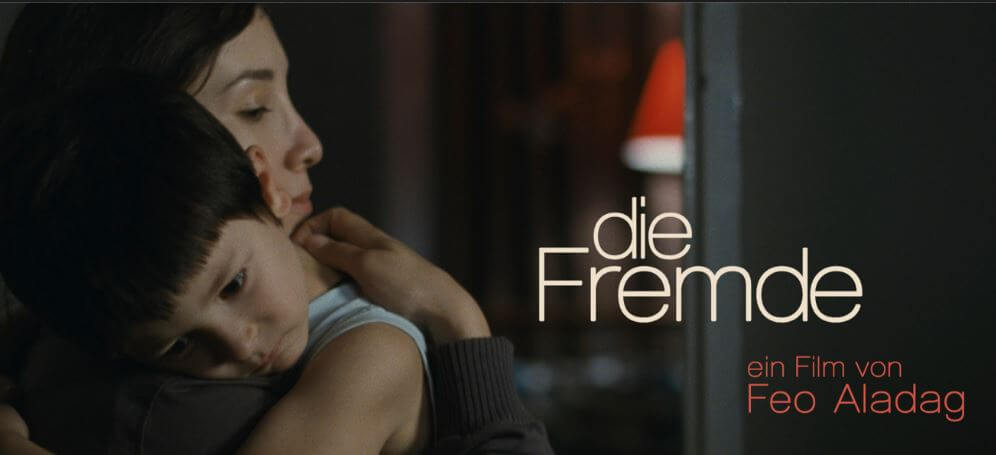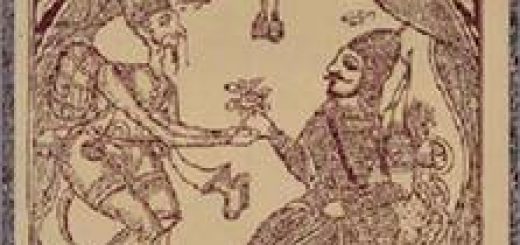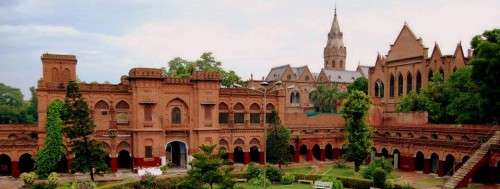No Honour in ‘Honour Killings’ – Die Fremde, Feo Aladag’s film review
No Honour in ‘Honour Killings’
Die Fremde, Feo Aladag’s film which tells the heart-rending tale of a Muslim German woman of Turkish descent, named Umay.
A Review of the Turko-German film, “Die Fremde” (When We Leave)
Starring: Sibel Kekilli, Nizam Schiller & Derya Alabora
Directed by: Feo Aladag (Germany, 2010)
Very few films can make me cry but, perhaps because of the too-close-to-home-for-comfort nature of this film, Feo Aladag’s film, which tells the heart-rending tale of a Muslim German woman of Turkish descent, named Umay, almost did. It was also Germany’s entry for the 2011 Academy Awards for Best Foreign Film.
From its opening scene in which we see the main protagonist (and the character who is at the centre of the whole subsequent film), Umay, (played wonderfully well by Sibel Kekilli—herself a German Turkish actress) being threatened with a gun by a teenage boy (whom we later learn is her younger brother) to the harrowing conclusion of the same scene at the film’s very end this powerful drama explores the phenomenon of honour killings amongst the Turkish community in Germany. (However the same issue affects the British Pakistani community and this is why I said that this movie, for me, was so powerfully close-to-home. Having lived in Germany for some time I also feel another layer of empathy with this movie’s characters.)
Umay is a German-born lady of Turkish descent who gets married to somebody from Istanbul, on her family’s insistence, and goes to live with him there. (This happens prior to the opening of the film). However, he is physically abusive to her and, one day, deciding that enough is enough, she decides to fly back to Berlin with their young son, Cem, without informing her husband. Umay goes back to her parent’s home and they are quite surprised to see her saying, “Why didn’t you tell us you were coming?” But these scenes establish that she is close to her family, especially her mother and her younger brother and sister. She also loves her father but he is quite patriarchal and it is clear she is a little afraid of him too. When she tells her parents that she does not intend to go back to her husband in Turkey they say that she will shame them in front of the community (sounds familiar, right?) and that she needs to go back if only for her son’s sake as otherwise he will be a “bastard”. When she complains to her father that her husband beats her he dismisses it as the way things are and the comment, “the hand which chides is also the hand that soothes.” Later, when she is in the bathroom with her mother we see the camera pan over her back and the bruises are revealed.
When Umay overhears her father’s plan to kidnap her son and take him back to Istanbul, she calls the German Social Services for help from her mobile phone and shortly afterwards police come to their apartment and escort her and her son to a safe home. As she is leaving with the police officers her father curses her.
This is a nuanced and many-layered film though and one also can feel sorry for the father who, despite his love for his daughter, is as much a prisoner of the ‘honour society’ as she is. This is shown in some wonderful camerawork and the anguish on his face is clear. The film then explores Umay’s attempts to survive without her family but it is difficult to do so and she especially feels that her son is missing out on important relationships with his grandparents and uncles and aunts. Consequently, she finds it impossible to follow the police’s advice to have no contact with her family at all. To complicate matters, her younger sister’s engagement to another German Turkish boy is initially called off by the groom’s family due to Umay’s “shameful” actions. Her younger sister then confides to their mother that she must get married immediately as she is carrying her lover’s child. The marriage eventually goes ahead (we are not told how the groom’s family were persuaded to change their mind).
Things take a turn for the worse for Umay when she, naively but understandably, turns up at her younger sister’s wedding along with her son Cem (as her and her sister were extremely close). When her family see her there they are horrified and her youngest brother forcibly escorts her out. Outside the marriage hall, on the street, she argues with him and he slaps her. Shocked, as they were very close, she reminds him of the time when she cleaned his diapers as a baby, how she mothered him. This whole scene is very powerful and the acting by the Turkish German cast is excellent and natural. (No Indo-Pakistani style melodramatics here!) Powerful words are exchanged. By this time my heart was in my mouth and I felt great pity for poor Umay. Nevertheless she makes her way into the wedding hall again by another entrance and goes up to the microphone on stage to make a grandstanding speech in which takes all the blame for bringing shame on her family and for being, “a bad Turkish daughter” to a stunned audience but she begs her family to let her son enjoy his aunt’s wedding and to be part of their family. She reminds her father of how he always said blood was thicker than water. Her family look shocked, sad and heartbroken but helpless. Her elder brother eventually abuses her verbally and throws her out and drags her away; then he viciously assaults her outside on the street. It is a sickening scene as he kicks and punches her. The terrified and uncomprehending child, Cem, looks on as his mother is beaten.
Eventually a beat-up Umay makes her way to her German girlfriend’s place and stays there awhile. She also finds some romance with a German boy with whom she works in a restaurant but it doesn’t really lead anywhere. Despite all she has been through, she finds herself still wanting to go back to her family, just wanting them to accept her for what she is. When Ramadan starts she goes to her parent’s apartment to offer them sweets but her father, tears in his eyes, turns her away. When asked by his wife who was at the door he lies and says, “only the neighbour’s kids wanting sweets.” Through the window though he watches mournfully as his daughter walks sadly away with her son and her German boyfriend.
Her brothers though are still looking for her whereabouts and get into fights in nightclubs with other Turkish men who make crude sexual remarks about their sister.
The father is hospitalised shortly after and, when Umay, now alone with her son, goes to visit him he doesn’t object and asks for her forgiveness. In one of the film’s most powerful scenes he says that she is proof of his failure as a father. She leaves but is stopped by her younger brother on the way who says he just wants to talk to her. Her young son is with her. As she begins to walk down the street with her youngest brother he suddenly pulls a gun out on her and attempts to shoot her. But he is unable to and lets the gun fall from his hands and runs away. As she turns around she fails to notice her eldest brother is behind her and, in his attempt to stab her in the back, he stabs her young child instead. He begins to cry with a look of horror at what he has done. The film goes silent momentarily and then our ears and hearts are pierced with a soul-shaking scream as Umya realises what has happened and begins to wail. The film ends with her carrying her dead child in her arms and walking, uncomprehending and ashen, down the street.
I have never been a supporter of so-called “honour killings” and cannot fathom why so much emphasis is placed on this concept in patriarchal societies in general and Islamic societies in particular. After all, it is completely against the Shari’iah. Not a single school of thought sanctions such murder and yet, because of this idea of izzat– a cultural accretion which has nothing to do with Islam–the lives of many Muslim women are made miserable. As this non-judgmental film so powerfully shows it is not only the poor woman who suffers but also the family. It is possible that historically, at one point, it was a sociological need for a community’s cohesion and survival, but what relevance does it have in the modern world?
And that too in the Muslim diaspora?
This film is a masterpiece of understated film-making with very natural performances by the largely Turkish cast and fully deserves it many awards and accolades. As a final point I think it is quite ironic that the lead actress, Sibel Kekilli, is a German of Turkish origin who used to be an actress in hardcore pornographic films but has made a successful transition to mainstream cinema. The film asks questions directly relevant to people of her background (i.e. second and third generation Muslims living in the West and their parents). This film asks some deep and disturbing questions about Muslim communities living as minorities in the West: how can predominantly honour-based societies cope with living in largely post-honour societies? Why does such an un-Islamic activity occur still amongst Muslims? What is the solution? Why is their such emphasis placed on this thing named honour and why is it linked with women’s sexuality? After all, when one reads accounts of the early female Muslims one sees that this concept was not prevalent. Islam allows a woman to leave an abusive relationship much easier than any other legal system. For women of Pakistani backgrounds one could argue–as some do–that it is a result of the influence of Hindu culture but that has its own problems too. After all, the Turks have never lived with any sizeable number of Hindus. Is it a remnant of patriarchal tribal societies that has continued to exist despite the conversion of the people to Islam? Whatever, I pray that the next generation of Muslims living in the West (and in the East) will educate themselves and stop this barbarism.
I don’t know but this film certainly raises many questions. It is a masterpiece and I hope it gets seen by a large audience (though that is unlikely as it is too challenging emotionally and too demanding for Joe Average) . It should be dubbed into Urdu and shown in cinemas in Pakistan. And instead of being “inspired” to make third-rate clones of second-rate Bollywood trash the Pakistani film industry could do far worse than taking inspiration from their Turkish counterparts who make films such as this one.














